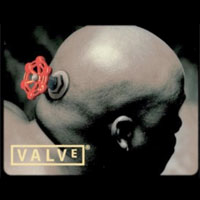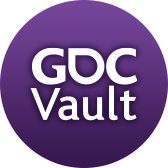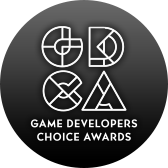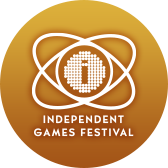This week, the GDC Vault has debuted a special selection of free lectures from Portal and Half-Life creator Valve Software, with topics including the studio's use of biofeedback, a look at Left 4 Dead's development, and the design philosophy behind Half-Life 2.
These talks join the recently released free videos on the GDC Vault, which include the GDC 2011's classic postmortem series, as well as lectures and panels from speakers such as Playdom's Raph Koster, GDC founder Chris Crawford, and more.
The following free lectures include video, audio and slide-based highlights from Valve Software's sessions at a handful of different Game Developers Conferences, with talks dating from 2011 back to 2004.
The first lecture offered for free in video form is a GDC 2011 session from Valve veteran and experimental psychologist Mike Ambinder, titled, "Biofeedback in Gameplay: How Valve Measures Physiology to Enhance Gaming Experience." This session examines how information regarding a player's physiological states can help developers "explore new avenues of gameplay and to improve in-house playtesting processes."
Using Valve's own Portal 2, Left 4 Dead 2, and Alien Swarm as examples, Ambinder explains how the studio measured players' skin conductance response, heart rate, and eye movements to design titles that effectively toy with player's psychological limits.
Next, a newly free GDC 2009 talk video, "From Counter-Strike to Left 4 Dead: Creating Replayable Cooperative Experiences" features Turtle Rock founder and Valve designer Michael Booth on the high-level design of the studio's cooperative zombie shooter.
Booth provides some background on the game, and explains "how it evolved from Counter-Strike, and the importance of procedural systems such as the AI Director in creating replayable and compelling cooperative experiences."
Elsewhere, in an audio recording, "Valve's Design Process for Creating Half-Life 2," a talk from GDC 2006, David Speyrer and Brian Jacobson break down the decentralized design process Valve used for Half-Life 2, a strategy which included three nearly independent design teams, as well as separate teams for art, sound, and story presentation.
With an accompanying PowerPoint also available, Speyrer and Jacobson explain how Valve conquered the challenges that came with such a design process, noting how the studio managed the six teams, minimized cost, implemented design constraints, and maintained a consistent vision for the game.
In addition to these three lectures, the GDC Vault has also released the bonus audio-only talk from GDC 2004, "The Making of the Official Counter-Strike Bot," another Michael Booth lecture that explains the technical and design work that went into creating a human-like AI for Turtle Rock and Valve's popular multiplayer shooter.
Booth points out that in order to create an AI of this nature, "it requires a thorough understanding of the game, insight into human limitations such as reaction times and attention prioritization, and a holistic sense of how to create a fun and believable "performance" from these disparate parts."
As the group behind the leading worldwide gaming conference, GDC organizers remain committed to making the event's best current and historical lectures available for free to the global game community, and will continue to release new free content throughout 2011.
Full GDC Vault access is available to GDC 2011 All-Access Pass holders, speakers, and All-Access Pass buyers to other GDC events for the rest of 2011. (Subscribers having issues accessing content should contact GDC Vault admins.)
Individual Vault subscriptions not tied to All-Access passes are now available in a limited-edition Beta invite process -- those interested in signing up to be invited in on a first come, first served basis should sign up on the GDC Vault website.
In addition, game-related schools and development studios who sign up for GDC Vault Studio Subscriptions can receive access for their entire office or company. More information on this option is available via viewing an online demonstration.
GDC organizers are also committed to making more archival content free for all during 2011, following a successful 'GDC 25 Chronicles' digitization project. GDC historian Jason Scott has been retained for the rest of 2011 to continue digitizing the extensive Game Developers Conference archives, with his 'Tales From The GDC Vault' series.



